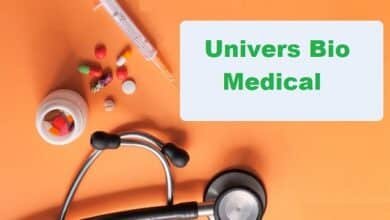Heart Disease Treatment: Effective Strategies for a Healthy Heart

Heart Disease Treatment remains one of the leading causes of death worldwide, affecting millions of people each year. It encompasses a range of conditions, including coronary artery disease, heart failure, and arrhythmias. Fortunately, advancements in medical science have made heart disease more manageable with lifestyle changes, medications, and surgical treatments.
In this comprehensive guide, we’ll explore the best heart disease treatment options, prevention strategies, and lifestyle modifications that promote heart health.
Understanding Heart Disease
Heart disease refers to a group of cardiovascular conditions that affect the heart’s function and blood circulation. Some of the most common types include:
- Coronary Artery Disease (CAD): The most common type, caused by narrowed or blocked arteries that reduce blood flow to the heart.
- Heart Failure: A condition where the heart cannot pump blood efficiently.
- Arrhythmias: Irregular heartbeats that can be too fast, too slow, or erratic.
- Valvular Heart Disease: Damage to one or more heart valves, affecting blood flow.
- Congenital Heart Defects: Structural abnormalities present at birth.
Each of these conditions requires a unique treatment approach, but lifestyle changes and early intervention remain crucial in managing heart disease.
Symptoms of Heart Disease
Recognizing the symptoms of heart disease is essential for early diagnosis and treatment. Common symptoms include:
- Chest pain or discomfort (angina)
- Shortness of breath
- Fatigue and dizziness
- Swelling in the legs, ankles, or feet
- Irregular heartbeat (palpitations)
- Nausea or sweating, especially during physical activity
These symptoms can vary depending on the type of heart disease and its severity. If you experience persistent chest pain or shortness of breath, seek medical attention immediately.
Causes and Risk Factors of Heart Disease
Heart disease often develops due to a combination of genetic, lifestyle, and environmental factors. Common causes include:
1. High Blood Pressure (Hypertension)
Uncontrolled high blood pressure forces the heart to work harder, increasing the risk of heart disease.
2. High Cholesterol
Excess cholesterol in the blood leads to plaque buildup in the arteries, restricting blood flow.
3. Poor Diet
Diets high in saturated fats, sugar, and sodium contribute to obesity, diabetes, and heart disease.
4. Lack of Physical Activity
A sedentary lifestyle weakens the heart and increases the risk of cardiovascular diseases.
5. Smoking and Alcohol Consumption
Smoking damages blood vessels, while excessive alcohol intake raises blood pressure and cholesterol levels.
6. Diabetes
High blood sugar levels damage blood vessels and nerves that control the heart.
7. Stress and Mental Health
Chronic stress and anxiety contribute to high blood pressure and heart disease.
8. Genetic Factors
A family history of heart disease increases the risk, making regular screenings essential.
Heart Disease Treatment Options

Treatment for heart disease depends on the type and severity of the condition. The primary goal is to improve heart function, reduce symptoms, and prevent complications.
1. Lifestyle Changes: The First Line of Defense
Making healthy lifestyle modifications can significantly reduce the risk and progression of heart disease.
a. Heart-Healthy Diet
- Increase intake of fruits, vegetables, whole grains, and lean proteins.
- Reduce salt, sugar, and saturated fats.
- Include omega-3 fatty acids from sources like fish and flaxseeds.
b. Regular Exercise
- Engage in at least 150 minutes of moderate exercise or 75 minutes of vigorous exercise weekly.
- Activities like walking, cycling, and swimming improve cardiovascular health.
c. Weight Management
- Maintaining a healthy BMI reduces the risk of high blood pressure, diabetes, and cholesterol.
d. Stress Management
- Practice relaxation techniques like yoga, meditation, and deep breathing.
- Prioritize sleep and maintain a healthy work-life balance.
2. Medications for Heart Disease
Doctors often prescribe medications to manage symptoms and prevent complications. Some commonly used medications include:
- Statins – Lower cholesterol levels and reduce plaque buildup.
- Beta-blockers – Reduce heart rate and blood pressure.
- ACE Inhibitors – Help relax blood vessels and lower blood pressure.
- Antiplatelet Drugs (Aspirin) – Prevent blood clot formation.
- Diuretics – Remove excess fluid to reduce heart strain.
3. Surgical and Medical Procedures
In severe cases, medical procedures and surgeries may be required.
a. Angioplasty and Stent Placement
A minimally invasive procedure where a stent is inserted to open blocked arteries.
b. Coronary Artery Bypass Grafting (CABG)
A surgical procedure that creates a new pathway for blood flow around blocked arteries.
c. Pacemaker or Implantable Cardioverter Defibrillator (ICD)
Devices that help regulate irregular heart rhythms and prevent sudden cardiac arrest.
d. Heart Transplant
For patients with end-stage heart failure, a heart transplant may be the only option.
Preventing Heart Disease: Tips for a Healthy Heart
Prevention is the best strategy for reducing the risk of heart disease. Here are some essential tips:
- Eat a Balanced Diet: Focus on nutrient-rich foods and limit processed meals.
- Stay Active: Exercise regularly to maintain cardiovascular fitness.
- Quit Smoking: Eliminating tobacco use significantly improves heart health.
- Monitor Blood Pressure and Cholesterol: Regular check-ups help in early detection.
- Manage Stress: Practice mindfulness and relaxation techniques.
- Limit Alcohol Consumption: Excessive drinking increases heart disease risk.
Frequently Asked Questions (FAQs)
1. Can heart disease be reversed?
While some forms of heart disease can be managed or slowed down, reversal depends on early diagnosis and lifestyle changes.
2. What is the best diet for heart disease?
A Mediterranean or DASH diet rich in fruits, vegetables, whole grains, and lean proteins is ideal.
3. How does exercise help heart disease?
Exercise strengthens the heart muscle, improves circulation, and helps regulate blood pressure and cholesterol.
4. What are the warning signs of a heart attack?
Chest pain, shortness of breath, nausea, dizziness, and sweating are common heart attack symptoms. Seek immediate medical help if you experience these signs.
5. How can I reduce my cholesterol naturally?
Eating fiber-rich foods, exercising, and avoiding trans fats can help lower cholesterol levels.
Conclusion
Heart disease is a serious condition, but with early intervention, lifestyle modifications, and appropriate medical treatment, it is manageable. A proactive approach to heart health—including a balanced diet, regular exercise, and stress management—can significantly reduce the risk of developing heart disease.
Taking charge of your heart health today can lead to a longer, healthier life. If you have concerns about your heart, consult a healthcare professional for personalized advice.



